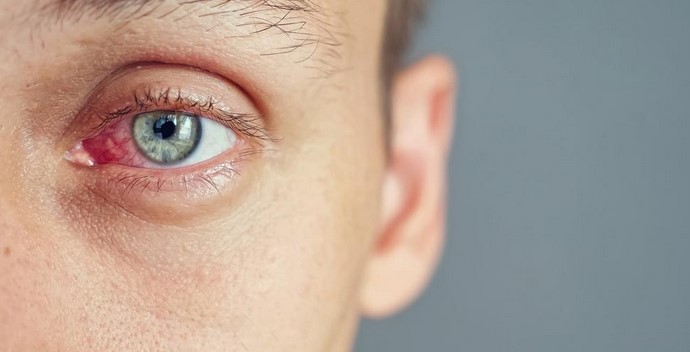Eye Herpes Home Treatment: Remedies for Ocular Herpes Relief

Eye Herpes, also known as Ocular Herpes, is a viral infection caused by the herpes simplex virus. It affects the eyes and can lead to complications such as corneal scarring and vision loss if not treated properly. While there is no cure for the virus, there are home treatments available that can help manage symptoms and prevent outbreaks. These remedies aim to provide relief from discomfort, reduce inflammation, and prevent the spread of the virus. It’s important to note that while these treatments can help manage symptoms, they are not a substitute for professional medical advice and treatment.
Effective Eye Herpes Home Treatment: Top Remedies for Ocular Herpes Relief
Eye herpes, also known as ocular herpes, is a viral infection that affects the eyes. It is caused by the herpes simplex virus, the same virus responsible for cold sores and genital herpes. Although it is a serious condition that can potentially lead to blindness, there are several home remedies that can provide relief and aid in the healing process.
Firstly, it is important to understand that while these remedies can alleviate symptoms, they are not a substitute for professional medical treatment. If you suspect you have eye herpes, it is crucial to seek immediate medical attention. Once you have been diagnosed and prescribed medication, these remedies can be used in conjunction with your treatment plan to provide additional relief.
One of the most effective home remedies for ocular herpes is the use of cold compresses. Applying a cold compress to the affected eye can help reduce inflammation and soothe discomfort. Simply soak a clean cloth in cold water, wring out the excess, and place it over your closed eye for about 10 minutes. Repeat this process several times a day as needed.
Another beneficial remedy is the use of warm tea bags. The tannins present in tea have anti-viral properties that can help fight the herpes virus. To use this remedy, steep a tea bag in hot water for a few minutes, allow it to cool to a comfortable temperature, and then place it over the affected eye for about 10 minutes. This can be done several times a day.
Diet also plays a crucial role in managing ocular herpes. Consuming a diet rich in lysine, an amino acid that inhibits the replication of the herpes virus, can help speed up the healing process. Foods high in lysine include fish, chicken, beef, lamb, milk, cheese, beans, brewer’s yeast, mung bean sprouts and most fruits and vegetables.
Hydration is another key factor in managing eye herpes. Drinking plenty of water can help flush out toxins from your body and boost your immune system, making it easier for your body to fight off the virus. Aim to drink at least eight glasses of water a day.
Lastly, maintaining good eye hygiene is essential in managing ocular herpes. Avoid touching your eyes as much as possible to prevent the spread of the virus. If you must touch your eyes, make sure your hands are clean. Also, avoid sharing personal items like towels and makeup to prevent the spread of the virus to others.
In conclusion, while ocular herpes is a serious condition, there are several home remedies that can provide relief and aid in the healing process. Cold compresses, warm tea bags, a diet rich in lysine, hydration, and good eye hygiene are all effective ways to manage this condition at home. However, these remedies should be used in conjunction with professional medical treatment. If you suspect you have eye herpes, seek immediate medical attention.Eye herpes, or ocular herpes, is a serious condition that requires medical attention. Home remedies may provide some relief from symptoms but they cannot cure the infection. These remedies may include warm compresses, over-the-counter pain relievers, and good hygiene practices to prevent spreading the virus. However, these should be used in conjunction with antiviral medication prescribed by a healthcare professional. It’s crucial to consult with a healthcare provider for proper diagnosis and treatment to prevent complications such as corneal scarring or vision loss.